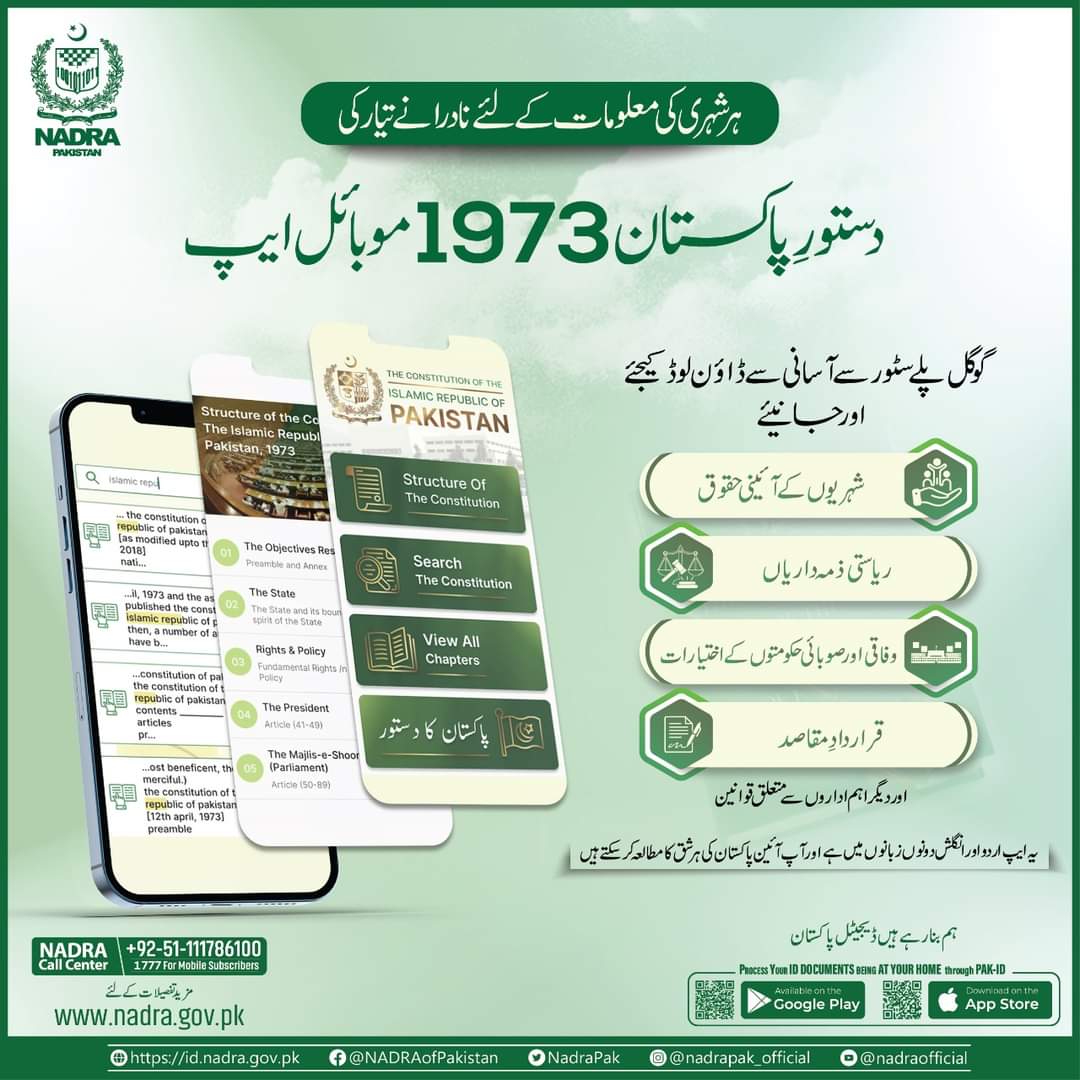
The Constitution of Pakistan mobile application has been launched by the National Database and Registration Authority, well-known as NADRA Pakistan. NADRA Pakistan has announced the Constitution of Pakistan in English and Urdu versions. You can now learn about the Constitution of the Islamic Republic of Pakistan in both English and Urdu through this application, available on the Google Play Store.
Constitution of Pakistan 1973 Mobile App Salient Features.
On this page, we are sharing the Pakistan 1973 Constitution in PDF format. This document covers all aspects of the Constitution of Pakistan 1973, providing information on each article and highlighting the salient features. You can also discover how many constitutions Pakistan has had and find a short summary of the Constitution of Pakistan, including its preamble, fundamental rights, citizens’ responsibilities, states’ responsibilities, and the resolution of objections.
To download this app, click the link given below.
Download the Google Play Store App.
Download the Constitution of Pakistan in PDF
Constitution of Pakistan 1973 summary
The Constitution of the Islamic Republic of Pakistan, adopted in 1973, is the supreme law of Pakistan. Here is a brief summary of its key elements:
- Preamble: The preamble emphasizes the establishment of an Islamic state, guided by the principles of democracy, freedom, equality, tolerance, and social justice.
- Islamic Republic: Pakistan is declared an Islamic Republic where the principles of democracy, freedom, equality, tolerance, and social justice, as enunciated by Islam, are to be fully observed.
- Fundamental Rights: The Constitution guarantees fundamental rights to the citizens, including the right to life, liberty, and security of persons, freedom of speech, and the right to education. However, reasonable restrictions can be imposed in the interest of the sovereignty or integrity of Pakistan.
- Federal Structure: The Constitution establishes a federal structure with provinces and territories, each having its government. Legislative powers are distributed between the federal and provincial governments.
- President and Prime Minister: The President is the head of state, elected by an electoral college. The Prime Minister, the head of government, is the leader of the majority party in the National Assembly.
- Parliament: The Parliament consists of two houses – the National Assembly and the Senate. Members are elected by the people and the provincial assemblies, respectively. Parliament is responsible for legislation and oversight of the executive.
- Islamic Principles: The Constitution incorporates Islamic principles, and laws are expected to conform to the teachings of Islam. Special provisions allow for the establishment of Islamic courts.
- Emergency Provisions: The Constitution provides for the declaration of a state of emergency in specific situations, allowing temporary suspension of certain fundamental rights.
- Amendment Procedure: The Constitution can be amended through a defined procedure, involving approval by both houses of Parliament and ratification by the President.
- Judicial System: The Constitution outlines the structure of the judiciary, including the Supreme Court, High Courts, and other subordinate courts.
The Constitution of the Islamic Republic of Pakistan, with amendments made over time, serves as the foundational document that outlines the political, legal, and social framework for the nation.



